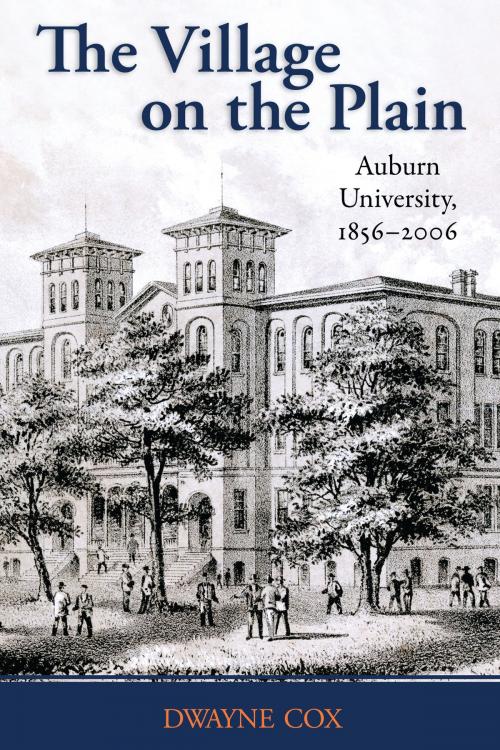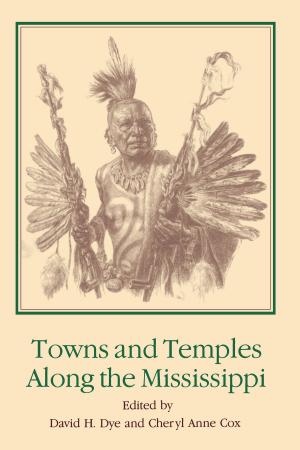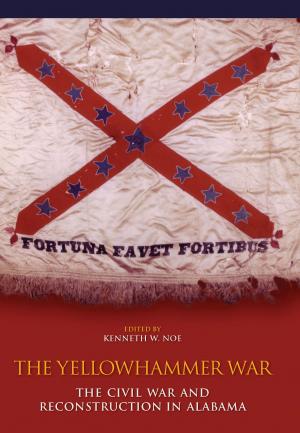The Village on the Plain
Auburn University, 1856–2006
Nonfiction, Reference & Language, Education & Teaching, History| Author: | Dwayne Cox | ISBN: | 9780817389758 |
| Publisher: | University of Alabama Press | Publication: | April 8, 2016 |
| Imprint: | University Alabama Press | Language: | English |
| Author: | Dwayne Cox |
| ISBN: | 9780817389758 |
| Publisher: | University of Alabama Press |
| Publication: | April 8, 2016 |
| Imprint: | University Alabama Press |
| Language: | English |
Long overdue for an institutional history, Auburn University possesses a rich and storied past. Dwayne Cox’s The Village on the Plain traces the school’s history in authoritative detail from its origins as a private college through its emergence as a complex land-grant university.
Originally founded prior to the Civil War with an emphasis on classical education, Auburn became the state’s land-grant college after the cessation of hostilities. This infused the school with a vision of the South as a commercial and industrial rival to the North. By the 1880s, instruction in applied science had become Auburn’s curricular version of this “New South” creed. Like most southern universities, Auburn never enjoyed financial abundance, creating scarcity that intensified internal debate over whether liberal arts or applied disciplines deserved more of the school’s limited resources.
Meager state funding for higher education complicated Auburn’s rise and became a source of competition with the University of Alabama. This rivalry was perhaps most intense between 1908 and 1948, when the two schools did not meet on the gridiron, but blocked and tackled one another in the legislature over the division of state funds.
Like many universities founded in somewhat isolated locations during the antebellum period, Auburn developed an insular culture, which hindered the school’s progress in issues related to race. Cox traces how this insularity also found expression in the school’s resistance to outside academic regulatory organizations as well as in conflicts over the university’s governance.
Auburn University’s history is that of a small private college that transformed itself in the face of sweeping national events and state politics, not only to survive threats but to emerge more complex and resilient. Offering much to students of higher education and Alabama history, as well as readers affiliated with Auburn University, The Village on the Plain tells the story of this complex and fascinating institution.
Long overdue for an institutional history, Auburn University possesses a rich and storied past. Dwayne Cox’s The Village on the Plain traces the school’s history in authoritative detail from its origins as a private college through its emergence as a complex land-grant university.
Originally founded prior to the Civil War with an emphasis on classical education, Auburn became the state’s land-grant college after the cessation of hostilities. This infused the school with a vision of the South as a commercial and industrial rival to the North. By the 1880s, instruction in applied science had become Auburn’s curricular version of this “New South” creed. Like most southern universities, Auburn never enjoyed financial abundance, creating scarcity that intensified internal debate over whether liberal arts or applied disciplines deserved more of the school’s limited resources.
Meager state funding for higher education complicated Auburn’s rise and became a source of competition with the University of Alabama. This rivalry was perhaps most intense between 1908 and 1948, when the two schools did not meet on the gridiron, but blocked and tackled one another in the legislature over the division of state funds.
Like many universities founded in somewhat isolated locations during the antebellum period, Auburn developed an insular culture, which hindered the school’s progress in issues related to race. Cox traces how this insularity also found expression in the school’s resistance to outside academic regulatory organizations as well as in conflicts over the university’s governance.
Auburn University’s history is that of a small private college that transformed itself in the face of sweeping national events and state politics, not only to survive threats but to emerge more complex and resilient. Offering much to students of higher education and Alabama history, as well as readers affiliated with Auburn University, The Village on the Plain tells the story of this complex and fascinating institution.















